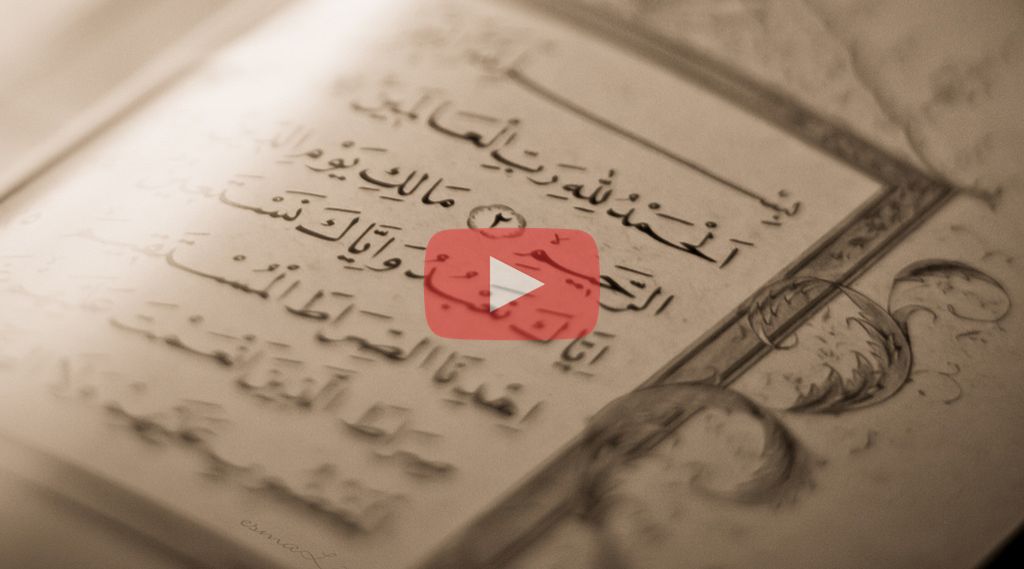The general meaning of jam` al-Quran is to ‘bring together the Quran.’ This was done and has to be understood in two ways:
- Bringing together the Quran orally, or in one’s mind (hifz).
- Bringing together the Quran in written form, or on sheets, or in a book.
Therefore, Jam` al-Quran in the classical literature has various meanings:
- To learn the Quran by heart.
- To write down every revelation.
- To bring together those materials upon which the Quran has been written.
- To bring together the reports of people who have memorized the Quran.
- To bring together all such sources, both oral and written.
In As-Suyuti’s Al-Itqan, it is said that the Quran had been written down in its entirety in the time of the Prophet but had not been brought together in one single place, and therefore these written records or documents had not been arranged in order. (As-Suyuti, Al-Itqan, I, p. 41)
However, this statement does not preclude that the ordering of the Quran and the arrangement of the surahs was fixed by the Prophet himself and safeguarded through oral transmission.
Stages of Collection
As far as the written text is concerned, one may distinguish three stages:
- In the time of the Prophet:
- In the hearts of men (memorization).
- On writing materials.
- In the time of Abu Bakr.
- In the time of `Uthman.
Why was no Book left by the Prophet?
The Prophet Muhammad did not present to his Companions the revelation collected and arranged in a single written volume. There are a number of good reasons for this:
- Because the revelation did not come down in one piece, but at intervals and was received continuously until the end of the Prophet’s life.
- Because some verses were abrogated in the course of revelation, and therefore flexibility needed to be maintained.
- The ayat and surahs were not always revealed in their final order, but were arranged later.
- The Prophet lived only nine days after the last revelation and was severely ill.
- There was no dispute or friction about the Quran during the time of the Prophet, as developed afterwards when he, as the final authority, was no longer available.
Writing down the Revelation
While writing was not widespread among the people in Arabia at the time of the Prophet, there were people who reportedly did write. It is said for example of Waraqah, Khadijah’s cousin, that he had been converted to Christianity in the pre-Islamic period “and used to write Arabic and write of the Gospel in Arabic as much as Allah wished him to write.” (Al-Bukhari)
The Prophet himself did much to encourage the Muslims to learn to write. It is related that some of the Quraish, who were taken prisoners at the battle of Badr, regained their freedom after they had taught some of the Muslims the art of writing. (Tabaqat Ibn Sa`d, II, p. 19)
Did the Prophet himself write?
Although it is not clear whether the Prophet Muhammad knew how to write, there is unanimous agreement among scholars that Muhammad himself did not write down the revelation. The Quran clearly states:
{And you (O Muhammad) was not a reader of any scripture before it, nor did thou write it with thy right hand, for then might those have doubted who follow falsehood} (Al-`Ankbut 29:48)
The Quran also refers to Muhammad on several occasions as the ‘unlettered prophet’ which some scholars have interpreted in the sense that he did not read or write:
{Those who follow the Messenger, the unlettered Prophet …} (Al-A`raf 7: 157)
His community too has been described as ‘unlettered’:
{It is he who has sent amongst the unlettered a messenger from among themselves …} (Al-Jum`ah 62:2)
The Quran was written during the Prophet’s lifetime
There is no doubt that the Quran was not only transmitted orally by many Muslims who had learned parts or the whole of it, but that it was also written down during the lifetime of the Prophet.
The well-known report about `Umar’s conversion shows that large passages of the revelation had already been written down even at a very early time, in Makkah, long before the hijrah, when the Prophet was still in the house of Al-Arqam.
`Umar had set out to kill the Prophet Muhammad, when somebody informed him that Islam had already spread into his own family and pointed out to him that his brother-in-law, his nephew and his sister had all become Muslims. `Umar went to the house of his sister and found her together with her husband and another Muslim. A dispute arose and `Umar violently attacked both his brother-in-law and his own sister:
When he did that they said to him, “Yes, we are Muslims and we believe in God and His Messenger and you can do what you like”.
When `Umar saw the blood on his sister, he was sorry for what he had done and turned back and said to his sister, ‘Give me this sheet which I heard you reading just now so that I may see just what it is which Muhammad has brought’, for `Umar could write.
When he said that, his sister replied that she was afraid to trust him with it. ‘Do not be afraid’, he said and he swore by his gods that he would return it when he had read it. When he said that, she had hopes that he would become a Muslim and said to him, ‘My brother, you are unclean in your polytheism and only the clean may touch it’.
So `Umar rose and washed himself and she gave him the page in which was Surat Taha and when he had read the beginning he said ‘How fine and noble is this speech …” (Ibn Hisham, pp. 156-7.)

